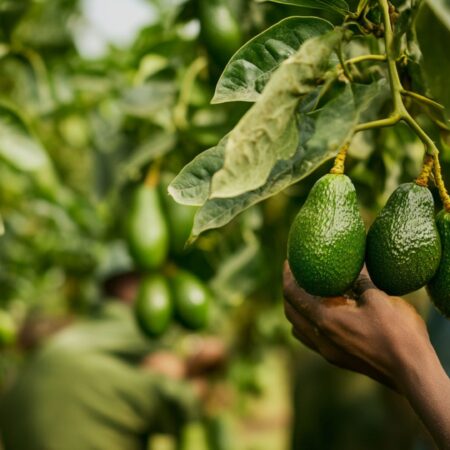
Sustainable farming has become an essential focus in modern agriculture, especially in regions like Kenya, where farming is not just a livelihood but a way of life. As global populations rise and environmental challenges intensify, the need for sustainable agricultural practices has never been more urgent. Chlorophyll Africa is at the forefront of this movement, implementing innovative and eco-friendly farming techniques that not only protect the environment but also empower local communities.
Understanding Sustainable Farming
Sustainable farming refers to agricultural practices that meet current food and textile needs without compromising the ability of future generations to meet theirs. This approach emphasizes the conservation of resources, reduction of pollution, and the maintenance of biodiversity. For Kenya, a country where agriculture accounts for about 33% of the GDP and employs over 70% of the population, sustainable farming is critical for ensuring long-term food security and economic stability.
Key Sustainable Farming Practices in Kenya
Kenyan farmers, supported by initiatives from organizations like Chlorophyll Africa, are adopting a range of sustainable farming practices. These methods are designed to enhance productivity while minimizing environmental impact.
- Conservation Agriculture
- Minimal Tillage: Reducing the disruption of soil structure, conservation agriculture involves minimal tillage, which helps maintain soil health. By avoiding excessive plowing, farmers can preserve the natural soil composition, reduce erosion, and enhance water retention.
- Crop Rotation and Diversification: Farmers practice rotating crops and diversifying their plantings to break pest and disease cycles. This not only improves soil fertility but also reduces the need for chemical inputs.
- Cover Cropping: Growing cover crops during off-seasons protects the soil from erosion, improves its organic matter content, and enhances overall soil fertility.
- Water Conservation Techniques
- Drip Irrigation: In areas where water scarcity is a concern, drip irrigation systems have proven to be a game-changer. These systems deliver water directly to the plant roots, minimizing water wastage and ensuring that crops receive the precise amount of moisture needed for optimal growth.
- Rainwater Harvesting: Many Kenyan farmers are now installing rainwater harvesting systems to capture and store rainwater for irrigation. This practice is particularly important in arid and semi-arid regions, where rainfall is unpredictable.
- Organic Farming
- Chemical-Free Cultivation: Organic farming in Kenya involves the use of natural fertilizers and pesticides, such as compost, manure, and neem extracts, to nourish crops and protect them from pests. This reduces the reliance on synthetic chemicals, which can harm the environment and human health.
- Soil Health Management: Organic farming practices focus on improving soil health through the use of organic matter and compost, which enhances the soil’s ability to retain nutrients and water.
- Agroforestry
- Tree Integration: Agroforestry involves the integration of trees and shrubs into crop and livestock systems. This practice improves biodiversity, provides shade and shelter for crops and animals, and enhances soil fertility through the natural cycling of nutrients.
- Carbon Sequestration: Trees in agroforestry systems capture and store carbon, helping mitigate the effects of climate change.
- Greenhouse Farming
- Controlled Environment Agriculture: Greenhouse farming allows for the cultivation of crops in a controlled environment, which optimizes growing conditions and extends growing seasons. This method is particularly effective in areas with harsh climates, enabling farmers to produce high-quality crops year-round.
- Water Efficiency and Pest Control: Greenhouses in Kenya are designed to conserve water by utilizing drip irrigation and rainwater harvesting systems. Additionally, the controlled environment reduces the need for chemical pesticides, as pests can be managed more effectively.
The Role of Technology in Sustainable Farming
Technology is playing a crucial role in the advancement of sustainable farming in Kenya. With the advent of precision agriculture, farmers can now monitor and manage their crops with greater accuracy and efficiency. Technologies such as satellite imaging, GPS-guided tractors, and soil sensors allow for precise application of water, fertilizers, and pesticides, reducing waste and environmental impact.
Moreover, mobile apps and digital platforms are empowering Kenyan farmers with real-time information on weather patterns, market prices, and best farming practices. These tools enable farmers to make informed decisions, optimize their resources, and increase their productivity.
Chlorophyll Africa’s Commitment to Sustainable Farming
Chlorophyll Africa is dedicated to promoting sustainable farming practices across Kenya. Our initiatives focus on empowering farmers with the knowledge, tools, and resources they need to adopt eco-friendly farming methods. By working closely with local communities, we ensure that sustainable practices are not only implemented but also tailored to the unique needs and challenges of each region.
Our Key Initiatives Include:
- Training and Capacity Building: We offer comprehensive training programs on conservation agriculture, organic farming, and modern irrigation techniques. Our goal is to equip farmers with the skills needed to implement sustainable practices effectively.
- Greenhouse Installation: We provide greenhouse design and installation services that allow farmers to grow crops in a controlled, sustainable environment. Our greenhouses are equipped with water-saving technologies and pest control systems to maximize productivity and minimize environmental impact.
- Community Engagement: At Chlorophyll Africa, we believe in the power of community-driven development. We work hand-in-hand with local communities to promote sustainable farming practices that improve livelihoods, protect the environment, and ensure food security.
The Future of Sustainable Farming in Kenya
The future of farming in Kenya lies in the widespread adoption of sustainable practices. As the country faces challenges such as climate change, water scarcity, and soil degradation, sustainable farming offers a pathway to resilience and long-term prosperity. By embracing these practices, Kenyan farmers can protect their land, increase their productivity, and secure a sustainable future for generations to come.
At Chlorophyll Africa, we are proud to be part of this transformation. Our commitment to sustainable farming is not just about improving crop yields; it’s about fostering a holistic approach to agriculture that benefits people, the planet, and the economy.



